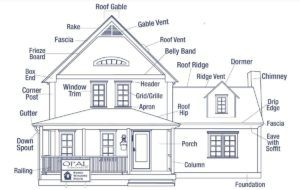The hours following a disaster at your home will be stressful and heartbreaking. Dealing with your insurance claim – whether you are a homeowner or a renter – will be emotional, but should not be difficult. The National Association of Insurance Commissioners (NAIC) offers this overview of what you might expect and what you will need to file a claim after a disaster. Immediately Following the Disaster
- To protect your property from further damage, you should make temporary repairs or arrange for a qualified professional to do so. Take photos of the damage and remove personal property if your home cannot be secured. Do not dispose of property until an insurance adjuster has reviewed it for your claim. Many policies include reimbursement for storage costs incurred until your home is repaired.
- If you can still live in the home, talk with your agent about critical repairs that need to be made. Whether you make the repairs or hire someone, save the receipts for your claim.
- If you need to find other lodging, keep records of expenses and all receipts. Homeowners and renter’s insurance generally provide limited coverage for expenses like: meals, rent, utility installation and transportation.
Reporting Your Claim
- Most insurance companies have a time requirement for filing a claim. The process will go faster if you can locate a copy of your policy and home inventory.
- Call the company or visit a mobile claims center to start your claim. If you cannot find the company or agent’s number, call your state insurance department. The NAIC can connect you to your state department by calling 1-866-470-6242 or by going to http://map.naic.org.
- You will be asked to list all items destroyed, damaged or missing. If you do not have a home inventory, begin making a list of items going room by room from memory. Include as much detail as possible, like where and when the item was purchased, the cost, brand name and model.
- If your car is damaged while in your garage/carport, it is covered by your automobile policy—not your homeowners policy. If you are insured by two separate companies for these coverages you must file a claim with both companies.
From Your Company
- Your insurance company will send an insurance adjuster to survey the damage at no cost to you. Public adjusters may offer the same services, but you would be responsible for any related fees. Check to be sure they are licensed with the state insurance department and ask for references and qualifications before retaining an independent adjuster. To contact your state insurance department, go to http://map.naic.org.
- Do not feel rushed or pushed to agree on a settlement. If there are disagreements, try to resolve them with your insurer. If you cannot reach an agreement, your state insurance department can help you decide if arbitration or mediation is an option.
- Your full claim may come in multiple payments. The first will likely be an emergency advance and may include additional living expenses. The payment for your personal property and any additional living expenses will be made out to you. Payments for the structure may be payable to you and your lienholder if there is a mortgage on your home. Lenders may place that money in an escrow account to pay for repairs as the work is completed.
Making Repairs
- Fraudsters often take advantage of the chaos following a disaster. When choosing a contractor to make repairs, check licensing and references before hiring. Always insist on a written estimate before repairs begin and do not sign any contracts before the adjuster has examined the damage. In some cases the adjuster will want to see the estimate before you begin making repairs.
- Do not pay a contractor the full amount up front or sign over your insurance settlement payment. A contractor should expect to be paid a percentage when the contract is signed and the remainder when the work is completed.
- If the contractor finds hidden damage that was not discovered in the original assessment by the adjuster, contact your insurance company to resolve the difference. For any disagreements that cannot be resolved, contact your state insurance department about your recourse.
Additional Information
- If your insurance company delays in responding to your claim, call the claims department to find out if an adjuster has been assigned. Verify your contact details, especially if you have evacuated your home. Call your state insurance department if the delay is unreasonable.
- Even after settling your claim, if you think of items that were not in your initial loss list, contact your insurance company. Unless the company has paid the entire limit for the coverage of those types of items, it is possible the company will make an additional payment.



